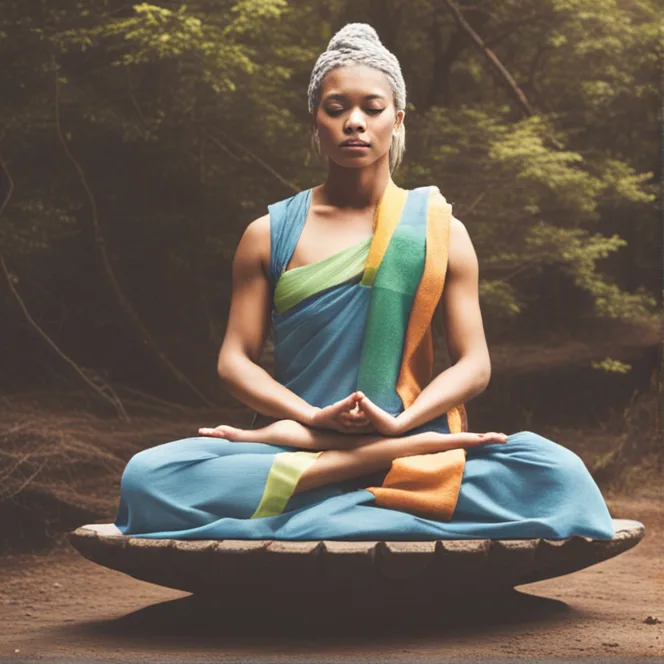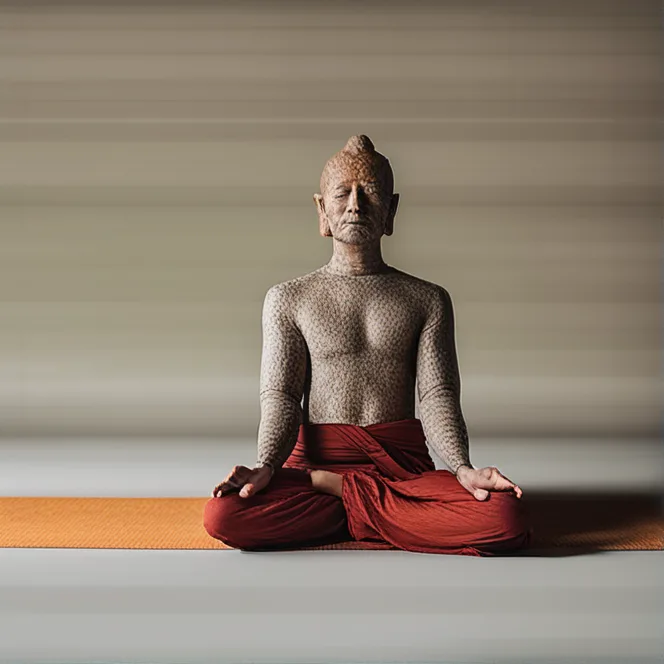
Finding The Best Meditation Practice
Explore different meditation techniques to discover the best one for your spiritual and mental wellness journey.
article by Hina Kurosawa
Meditation has been practiced for centuries as a way to achieve mental clarity and emotional calmness. Seeking the ideal meditation method is a personal journey that varies from individual to individual. With an array of techniques available, it's important to understand that there is no one-size-fits-all approach. This article aims to guide you through the process of selecting the best meditation practice for your needs, aligning with your lifestyle and mental wellbeing goals.

A Spectrum of Techniques
Meditation comes in various forms, each with distinct focuses and benefits. Mindfulness meditation encourages present-moment awareness, while Transcendental Meditation uses mantras to delve deeper into consciousness. Guided meditations offer external direction through audio or visual stimuli, and movement meditations, such as yoga or tai chi, couple physical activity with meditative focus. Understanding these styles is crucial in determining the best fit for your personal aspirations and temperament.

The Individual's Path
When choosing a meditation technique, consider your personal goals. Are you seeking stress relief, enhanced concentration, or spiritual growth? Different methods cater to different objectives. For example, mindfulness is great for stress reduction, whereas heart-centered meditations might better serve those on a spiritual quest. Listen to your intentions and let them steer you towards the right practice.

Consistency & Practice
The effectiveness of any meditation technique is greatly influenced by regular practice. Ideally, the best method for you will be one that you can perform consistently. Whether you have five minutes or an hour to dedicate each day, there is a style that fits your schedule. It's often more beneficial to practice a simpler form regularly than a complex one sporadically.

Experimentation as Exploration
Exploring different methods is part of the journey to finding the best meditation for you. Attend workshops, try online classes, or download meditation apps. Some individuals find a perfect match on the first try, while others may need time to explore their options. Be patient with yourself during this exploratory phase and be open to change.
Integrating With Your Lifestyle
Consider how each meditation practice integrates with your daily routine and lifestyle. If you lead a busy life, a breathing practice that can be done on-the-go might be ideal. For those with more time, longer sessions of seated meditation could be more beneficial. Think about when and where you can meditate and tailor your choice to suit these circumstances.
Listening to Your Body & Mind
Ultimately, your body and mind will give you feedback on which meditation technique is the best for you. Pay close attention to how you feel during and after your practice. The right method should leave you feeling balanced, calm, and at ease. If a technique doesn't feel right after giving it a fair chance, don't hesitate to try something else. Your personal comfort and inner peace are the top priorities.
Published: 12/6/2023
Modified: 12/6/2023
More predictions
Come back here soon to learn more about yourself and your future


Daily Meditation For Work-Life Balance
In today's fast-paced world, achieving a harmonious work-life balance has become a paramount concern for many individuals. The constant demands of our professional lives often spill over into our personal time, leaving us feeling stressed, overwhelmed, and emotionally drained. However, a simple yet profound practice can be the key to restoring equilibrium: daily meditation. In this article, we will explore the benefits of incorporating daily meditation into your routine, shedding light on how it can help you navigate the delicate dance between work and life.


Meditation: A Journey To Personal Transformation
Explore how regular meditation practice can lead to profound personal changes and enhancements in your daily life.


Finding Equilibrium: Meditation For Balance
Embark on a journey within to discover equilibrium through meditation, an essential practice in the quest for balance in life.